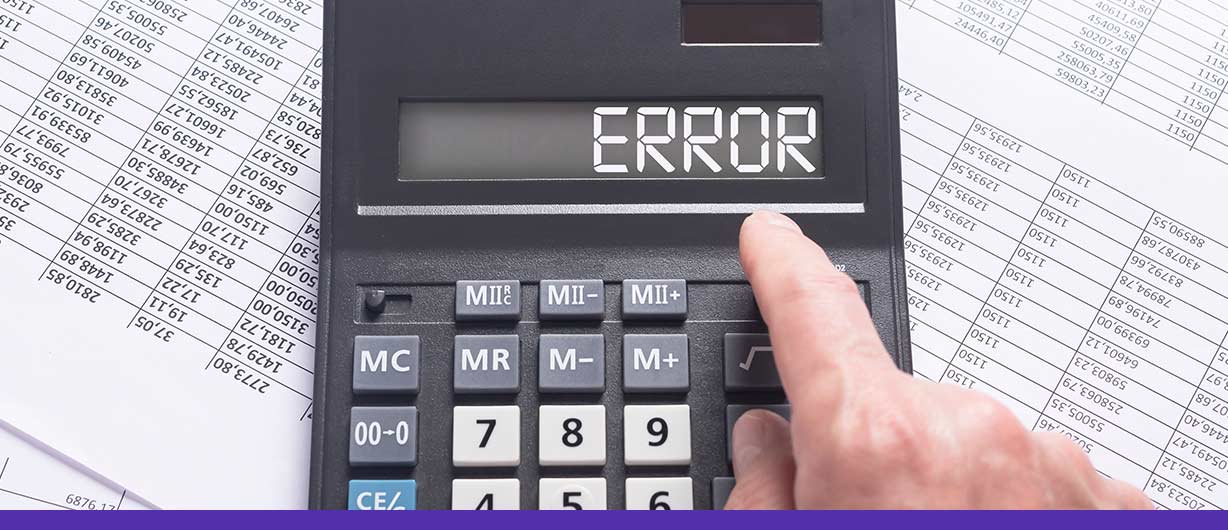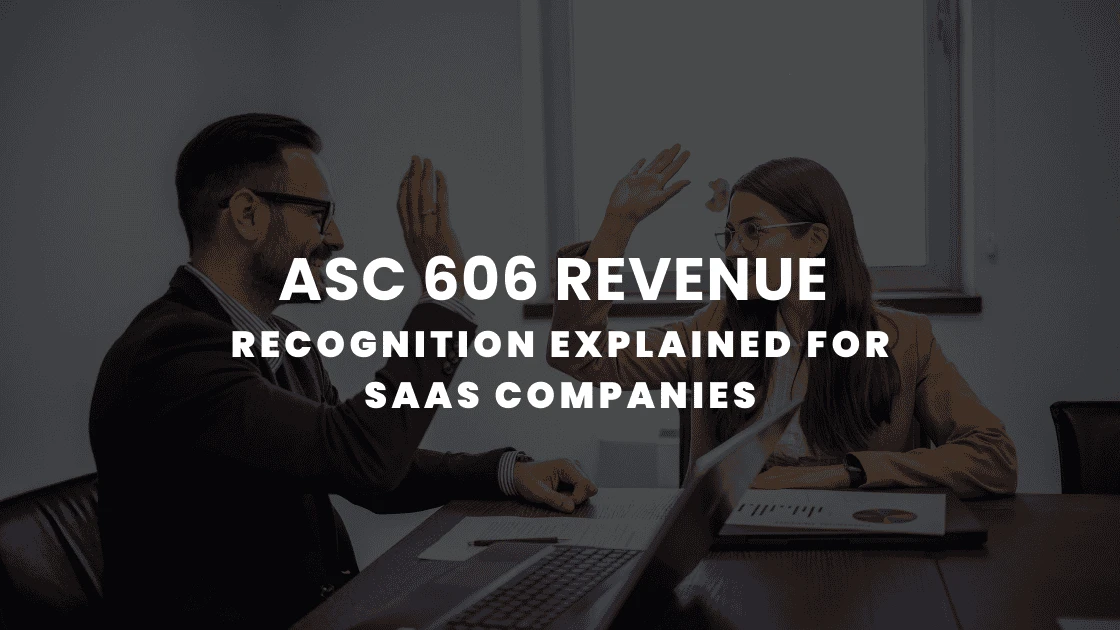August 25 2023 | By Farwah Jafri | 6 minutes Read

What are the top 10 errors of accounting?
1. Data Entry Errors
2. Omission Errors
3. Misclassification Errors
4. Reversal Errors
5. Recording Transactions in the Wrong Period
6. Unrecorded Liabilities or Expenses
7. Duplicate Entries
8. Incorrect Bank Reconciliation
9. Inventory Errors
10. Not Following Accounting Standards
What are the types of accounting errors?
1. Errors of Omission
2. Errors of Commission
3. Errors of Principle
4. Errors of Original Entry
5. Errors of Reversal
6. Errors of Duplication
7. Errors of Principle
8. Errors of Complete Reversal
9. Compensating Errors
10. Errors in the Trial Balance
11. Errors of Non-Principle
Conclusion
Accounting is the backbone of any successful business, providing essential insights into its financial health and performance. From small startups to established enterprises, the intricacies of financial record-keeping can sometimes lead to significant mistakes that can have far-reaching consequences. But fear is not! In this article, we’ll identify and explore ten of the most common errors of accounting that occur, equipping you with the knowledge and tools to avoid them in the future.
So, without further ado, let’s dive into the top ten errors of accounting and explore the best strategies to avoid them, safeguarding the stability and prosperity of your business!
Accounting errors can significantly affect businesses, affecting financial statements, decision-making, and overall financial health. Here are ten common accounting errors and detailed explanations of how to prevent them:
Mistakes made while recording financial transactions, such as entering incorrect amounts or transposing numbers, can lead to inaccurate financial records.
Prevention:
– Implement a double-entry system, where every transaction is recorded twice, once as a debit and once as a credit, to ensure accuracy.
– Regularly reconcile bank statements, invoices, and receipts to the accounting records to identify and correct discrepancies promptly.
– Use validation rules or data validation tools in accounting software to prevent incorrect data entry.
Failing to record a transaction can result in incomplete financial records, leading to inaccurate financial statements.
Prevention:
– Create checklists for daily, weekly, and monthly accounting tasks to ensure all transactions are captured.
– Set up automated reminders for important accounting activities, such as billing and invoicing, to avoid missing transactions.
Please categorize transactions into the correct accounts to avoid distorting financial reports and affecting decision-making.
Prevention:
– Develop a well-organized and clear chart of accounts, and train employees to use it correctly while recording transactions.
– Conduct periodic reviews of transactions to ensure they are properly classified.
Accidentally reversing a transaction, such as posting a credit instead of debit, can lead to incorrect balances and financial statements.
Prevention:
– Assign different individuals to input and review transactions to reduce the chances of errors going unnoticed.
– Implement approval processes for important transactions to provide an additional layer of review.
Recording transactions in the wrong accounting period can lead to inaccurate financial statements for that specific period.
Prevention:
– Establish clear cut-off procedures to record all transactions in the appropriate accounting period.
– Conduct periodic reviews to identify any misdated transactions and correct them promptly.
Failing to record liabilities or expenses, such as unpaid invoices or accrued expenses, can understate expenses and overstate profits.
Prevention:
– Follow the accrual accounting method, which requires recognizing expenses and liabilities when they are incurred, not just when they are paid.
– Conduct regular audits to identify unrecorded liabilities or expenses.
Description: Entering the same transaction twice can lead to overstated revenues, expenses, and other financial metrics.
Prevention:
– Implement internal controls that restrict duplicate entries and require unique identifiers for each transaction.
– Perform periodic reconciliations to detect and rectify any duplicate entries.
Errors in bank reconciliation can result in discrepancies between the bank statement and the cash balance in the accounting records.
Prevention:
– Perform bank reconciliations monthly, comparing the bank statement with the accounting records.
– If discrepancies are found, promptly investigate and resolve the reasons behind them.
Mishandling inventory can lead to incorrect valuation and affect financial statements, especially for businesses that rely heavily on inventory.
Prevention:
– Implement a reliable inventory management system that tracks stock levels accurately and ensures timely updates.
– Conduct regular physical inventory counts to reconcile with the recorded amounts.
Ignoring or misapplying accounting standards can lead to non-compliance, incorrect financial statements, and potential legal consequences.
Prevention:
– Stay updated with accounting standards and ensure all staff receive proper training.
– Have financial statements reviewed or audited by external accounting professionals to validate compliance with accounting standards.
Note: By implementing these prevention measures and maintaining a culture of accuracy and accountability, businesses can significantly reduce the risk of errors in accounting and ensure reliable financial reporting.
The types of errors of accounting can be broadly categorized as follows:
These occur when transactions or financial information are completely left out or not recorded in the accounting records.
In contrast to errors of omission, errors of commission happen when incorrect data is entered into the accounting system, such as incorrect figures or account coding.
These errors occur when accounting principles are incorrectly followed. For example, they recognized revenue before it was earned or expensed as a capital item.
These errors arise when incorrect amounts are recorded in the books of prime entry (e.g., wrong figures in the sales or purchases daybook).
This type of error occurs when the digits in a transaction are reversed, resulting in an incorrect entry (e.g., writing $54 instead of $45).
Duplication errors happen when a transaction is recorded more than once, leading to an overstatement of assets, revenue, or expenses.
These errors occur when accounting principles are not correctly applied. For instance, capital expenditure is treated as revenue expenditure or vice versa.
In this case, amounts are entirely reversed, such as writing a credit amount as a debit and vice versa.
These errors occur when two or more mistakes cancel each other out, leading to an overall correct financial position despite individual errors.
When the trial balance does not balance due to the unequal recording of debit and credit amounts, it is an error in the trial balance.
These errors involve transactions that do not conform to accounting principles but are not deliberate attempts to deceive.
Note: It is crucial to promptly identify and correct accounting errors to ensure accurate financial reporting and decision-making. Regular reconciliations, internal controls, and periodic reviews can help detect and rectify errors promptly.
Mastering the art of accurate accounting is an indispensable skill for any business or financial professional. Identifying and addressing common errors in accounting lays the groundwork for a more stable and prosperous financial future. Remember, prevention is always better than cure; the same principle applies to accounting. Implementing robust practices and following preventive measures will significantly reduce the likelihood of errors of accounting occurring and ensure that your financial statements remain reliable and trustworthy. Small businesses usually look to outsource the finances of their companies. Monily being the expert, help such companies with their years of experience in multiple financial services. Book a free consultation with one of our experts and get the service at affordable prices.
Subscribe for business tips, tax updates, financial fundamentals and more.
MORE BLOGS

Running a SaaS business can look simple from the outside. Customers sign up, pay monthly or yearly, and keep using the product. Quite straightforward, right? Behind […]
Learn More →
Revenue is the heartbeat of any SaaS business. But how and when that revenue shows up on your books can change everything, from investor confidence to […]
Learn More →
If you’re a small business, we will absolutely get it if you say you’re having a hard time choosing a payment platform for your company. And […]
Learn More →